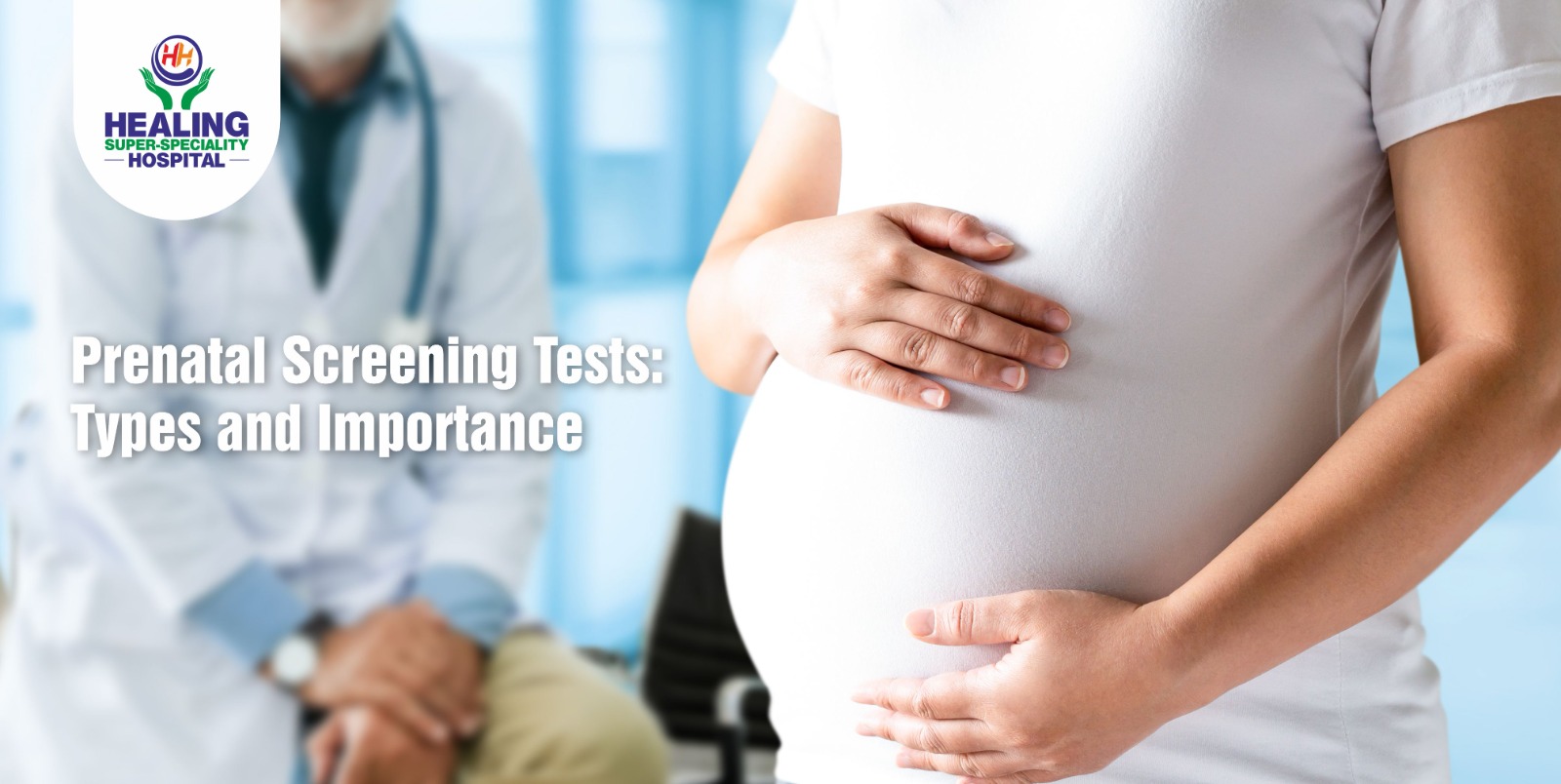Prenatal screening tests are a crucial and the most important part of prenatal care. It helps identify any potential risks or abnormalities in the developing fetus. These tests are performed during pregnancy to assess the health of both the mother and the baby. In recent years, there has been a significant advancement in prenatal screening technology. This allows for more accurate and comprehensive testing.
At Healing Hospital, our team of expert the best gynecologists in Chandigarh is providing the highest quality prenatal care. It includes a wide range of prenatal screening tests and other services as well. In this article, we will discuss the different types of prenatal screening tests. Also, we will discuss their importance in ensuring a healthy pregnancy and delivery.
Understanding the importance of prenatal screening tests
Prenatal screening tests are a crucial aspect of prenatal care. And play a vital role in ensuring the health and well-being of both the mother and the developing fetus. These tests are designed to assess the risk of certain genetic or chromosomal abnormalities in the fetus. They provide valuable information that can guide decision-making regarding the pregnancy.
There are various types of prenatal screening tests available, each with its benefits and limitations.
Non-invasive prenatal screening
One of the most commonly used tests is the non-invasive prenatal screening (NIPS) test, also known as cell-free DNA testing. This test analyzes a small sample of the mother’s blood to detect the presence of certain genetic conditions in the fetus, such as Down syndrome, trisomy 18, and trisomy 13. NIPS has a high detection rate and a low false-positive rate, making it an effective tool for identifying potential risks.
Maternal serum screening test
Another important prenatal screening test is the maternal serum screening test, which involves a blood test and an ultrasound examination. This test measures specific substances in the mother’s blood to evaluate the risk of chromosomal abnormalities, such as Down syndrome and neural tube defects. While this test may not provide a definite diagnosis, it can help identify pregnancies that may require further testing or monitoring.
Are prenatal screening tests diagnostic tests?
It is important to note that prenatal screening tests are not diagnostic tests. What if a screening test indicates a higher risk for a certain condition? Further diagnostic testing, such as amniocentesis or chorionic villus sampling, may be recommended to confirm the diagnosis. These invasive procedures carry a small risk of miscarriage, which is why prenatal screening tests are typically offered as a first step to assess the need for further testing.
Understanding the importance of prenatal screening tests cannot be overstated. Early identification of potential risks allows parents and healthcare providers to make informed decisions regarding prenatal care, including the consideration of additional tests, monitoring, or treatment options. It provides an opportunity for proactive healthcare management and ensures that appropriate support and resources are available throughout the pregnancy and beyond.
Importance of Prenatal Screening Tests
Early Detection of Abnormalities –
Prenatal screening tests help in the early detection of various fetal abnormalities and genetic disorders. Early identification allows parents to prepare emotionally and make decisions about the future course of action, including potential medical interventions.
Risk Assessment –
These tests aid in assessing the risk of certain conditions, such as chromosomal abnormalities and neural tube defects. Based on the results, healthcare providers can recommend further diagnostic tests or interventions if necessary.
Informed Decision-making –
Armed with the information from prenatal screening tests, expectant parents can make well-informed decisions regarding their pregnancy, birthing options, and potential medical treatments.
Preparation and Support –
Knowing about any potential health issues beforehand allows parents to seek appropriate medical care and support services for their child. It also enables healthcare providers to plan for specialized care if required after birth.
Reducing Anxiety –
Pregnancy can be an emotionally overwhelming time for parents. Prenatal screening tests, especially those with reassuring results, can help alleviate anxiety and provide peace of mind during the pregnancy journey.
Patient-Provider Communication –
Prenatal screening tests facilitate open communication between expectant parents and healthcare providers. This dialogue is essential for addressing any concerns, answering questions, and tailoring care to meet the specific needs of the pregnant woman and her baby.
In a Nutshell
In conclusion, prenatal screening tests are a critical component of prenatal care, providing valuable information about the health and well-being of the fetus. They enable healthcare providers and parents to make informed decisions, ensuring the best possible outcomes for both mother and child. It is important to discuss the available screening options with your healthcare provider to determine which tests are appropriate for your specific situation.


























